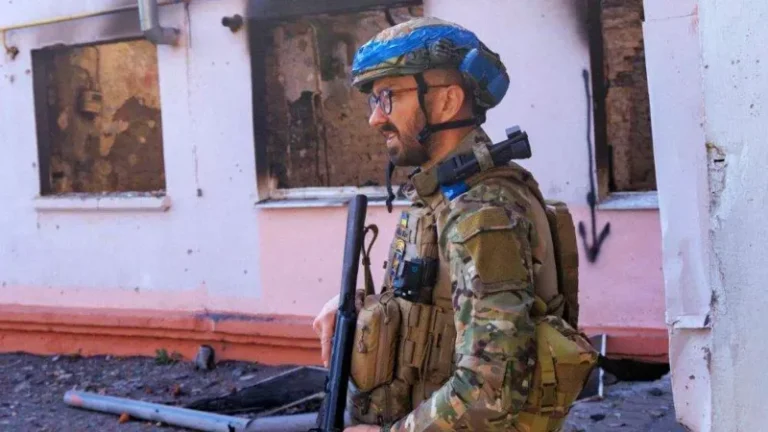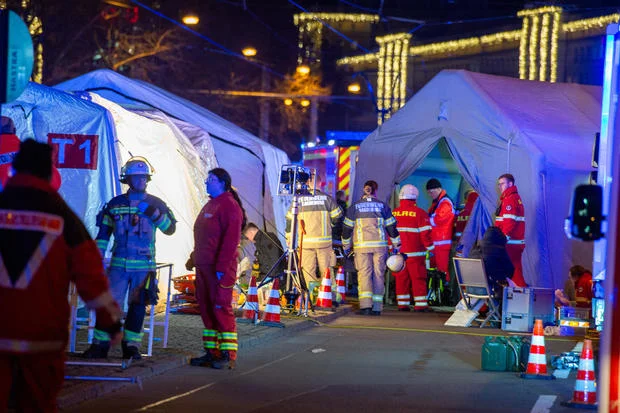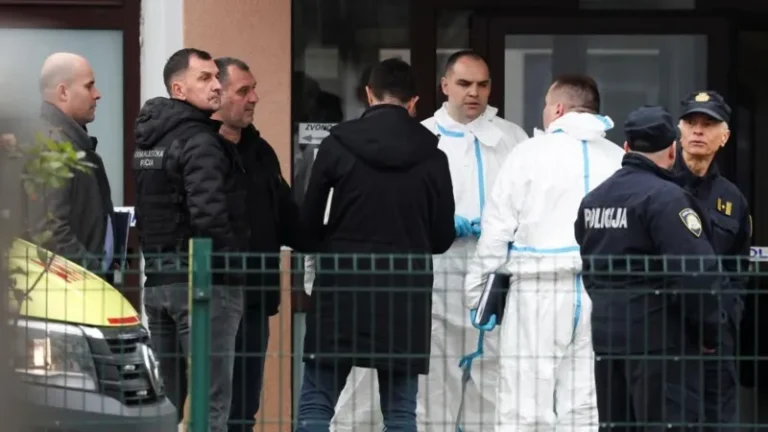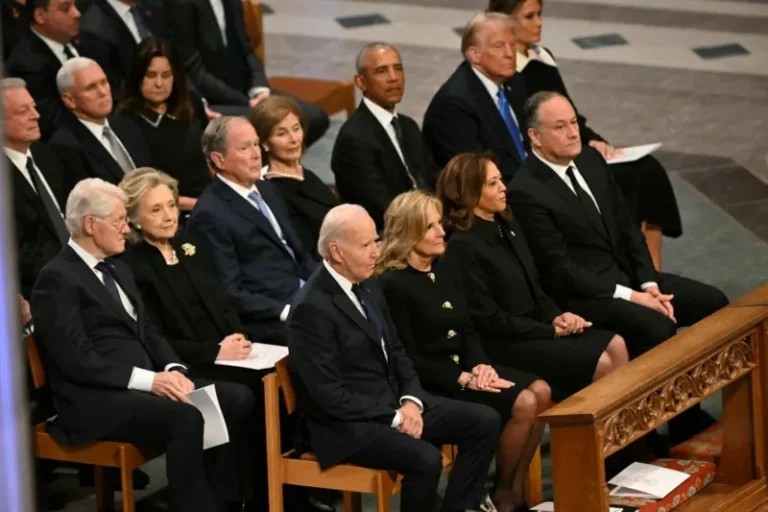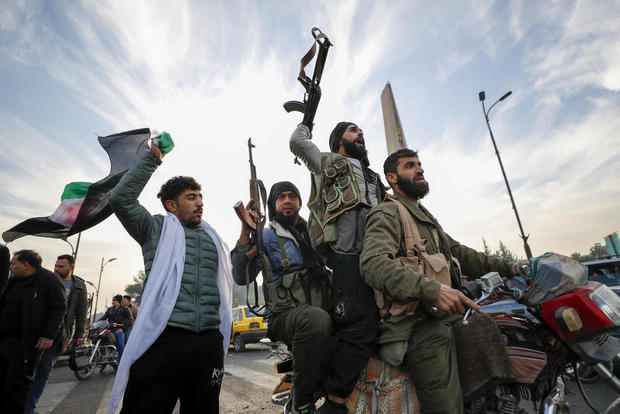

On Sunday, crowds in Damascus gathered to celebrate the fall of the Assad regime, marking the end of 50 years of the Assad family’s rule. People chanted, prayed, and even fired occasional shots into the air, as the stunning advances by opposition forces raised questions about the future of Syria and the broader region.
According to Russia’s Foreign Ministry, President Bashar Assad and his government officials had resigned and left the country following negotiations with rebel groups. Russian state news agencies, Tass and RIA, reported that Assad and his family had sought asylum in Moscow. The reports cited an unnamed Kremlin source, though CBS News could not independently verify the information.
The Russian Ministry later confirmed that Assad had departed Syria after peaceful power transition talks with the opposition, but emphasized that Russia was not involved in the negotiations. The ministry expressed concern over the unfolding events in Syria, calling them “dramatic.”
This marks the first time since 2018 that opposition forces have reached Damascus, when Syrian government troops had regained control of areas around the capital after a long siege. U.S. President Joe Biden, who convened with his national security team to address the situation, described Assad’s fall as a “historic opportunity.” Biden promised to support Syria and its neighbors against any emerging threats.
“At long last, the Assad regime has fallen,” Biden said in a statement from the White House on Sunday afternoon, following the opposition’s takeover of the country.
Festivities in the Capital
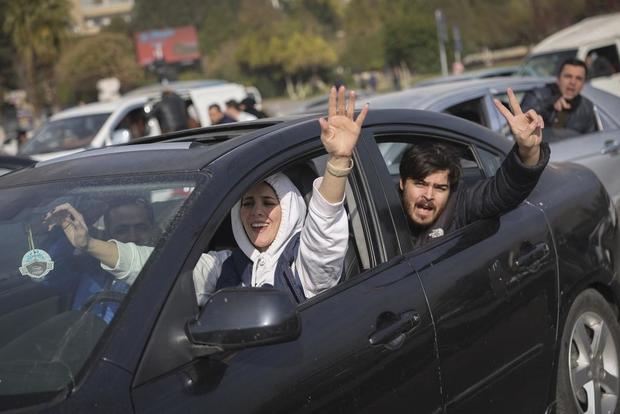
The leader of Syria’s largest insurgent group visited the historic Umayyad Mosque in Damascus and declared that the defeat of President Bashar al-Assad “is a victory for the Islamic nation.” Ahmad al-Sharaa, formerly known as Abu Mohammed al-Golani, made his first public appearance and remarks since opposition fighters entered the capital. Speaking to a crowd at the mosque, he accused Assad of turning Syria into “a farm for Iran’s greed” and a base for the illegal amphetamine Captagon, which has funded Assad’s inner circle.
Videos emerging from Damascus showed families entering the presidential palace, some carrying household items like plates. Mohammed Amer Al-Oulabi, 44, an electricity sector worker, shared his excitement, saying, “I did not sleep last night, and I refused to sleep until I heard the news of his fall. From Idlib to Damascus, it only took a few days, thank God. May God bless the heroic lions who made us proud.” The rapid developments have sent shockwaves through the region, prompting Lebanon to close most of its land border crossings with Syria, leaving only the Beirut-Damascus link open. Jordan also closed its border crossing with Syria.
The rebels now face the immense challenge of uniting a country torn apart by years of conflict and divided between numerous armed factions. In the north, Turkey-backed opposition fighters are clashing with U.S.-allied Kurdish forces, while the Islamic State group continues to operate in some remote areas. Syrian state television broadcast a statement from a group of rebels claiming that Assad had been overthrown and all prisoners released. The spokesman urged both rebel fighters and civilians to protect the institutions of “the free Syrian state.
CENTCOM Launches Airstrikes Against ISIS in Syria
In response to ongoing unrest in Syria, the U.S. Central Command (CENTCOM) carried out multiple airstrikes on Sunday, targeting known Islamic State (ISIS) camps and operatives in central Syria. These strikes are part of CENTCOM’s ongoing efforts to disrupt, degrade, and ultimately defeat ISIS, ensuring the terrorist group does not exploit the current situation to reestablish its presence in the region.
The operation involved over 75 targets being struck with the support of various U.S. Air Force assets, including B-52 bombers, F-15 fighters, and A-10 ground attack aircraft. While battle damage assessments are still underway, there are no reports of civilian casualties.
“We will not allow ISIS to take advantage of the instability in Syria to rebuild,” said Gen. Michael Erik Kurilla. “Any groups in Syria that partner with or support ISIS will be held accountable.”
Global Reactions
Iran, which had been a strong supporter of Bashar al-Assad’s government, has stated that Syrians should be allowed to determine their country’s future “without destructive, coercive, foreign intervention.”
This comment from the Iranian Foreign Ministry on Sunday marked the country’s first official response to the fall of Assad’s government to rebel forces.
Geir Pedersen, the U.N. Special Envoy for Syria, urged immediate discussions in Geneva on Saturday to facilitate an “orderly political transition” in Syria.
Meanwhile, Qatar, a significant regional player, convened an emergency meeting with foreign ministers and high-ranking officials from eight countries with vested interests in Syria late Saturday. Participants included representatives from Iran, Saudi Arabia, Russia, and Turkey.
France welcomed the collapse of Assad’s regime, noting that it followed more than 13 years of violent repression. The French Foreign Ministry issued a statement, saying, “The Syrian people have endured immense suffering. Bashar Assad has bled the country dry, forcing many of its citizens into exile or subjecting them to massacres, torture, and chemical weapon attacks by the regime and its allies.”
German Foreign Minister Annalena Baerbock acknowledged the relief felt by many Syrians following Assad’s downfall but cautioned against allowing the country to fall under the control of other extremist groups. Baerbock emphasized the need for accountability, stating, “Assad has murdered, tortured, and used poison gas against his own people. He must be held responsible for these actions.”
Germany, which hosts the largest Syrian diaspora in the European Union with over 1 million Syrian nationals, saw celebrations in Berlin on Sunday as thousands of Syrians gathered to mark the end of Assad’s rule. Many waved opposition flags and honked car horns in celebration. Ahmed, a 39-year-old Syrian refugee from Aleppo, shared his joy: “We’re happy. The dictatorship is over. Assad has gone,” he said, describing how Syrians are united once again after years of suffering.
The Syrian civil war, which began in 2011 with a pro-democracy uprising against Assad’s regime, has claimed the lives of over 500,000 people and displaced around 12 million Syrians.

